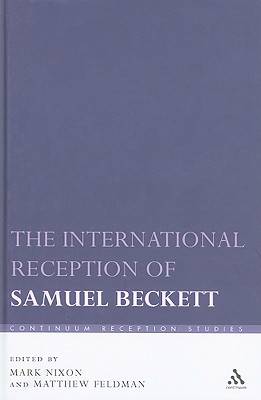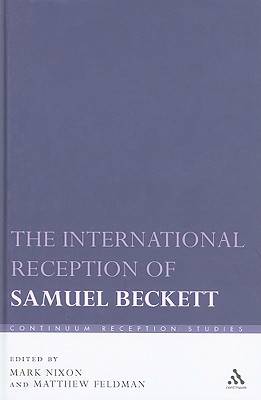
- Afhalen na 1 uur in een winkel met voorraad
- Gratis thuislevering in België vanaf € 30
- Ruim aanbod met 7 miljoen producten
- Afhalen na 1 uur in een winkel met voorraad
- Gratis thuislevering in België vanaf € 30
- Ruim aanbod met 7 miljoen producten
Zoeken
The International Reception of Samuel Beckett
€ 390,45
+ 780 punten
Omschrijving
Over the last decade, Samuel Beckett's popularity has rocketed around the world and he is increasingly recognised as one of the most important and influential writers of the twentieth century but there has been very little scholarly work on Beckett's reception outside Europe. This comprehensive volume brings together essays from leading critics on Beckett's international critical reception. Due to Beckett's linguistic and artistic abilities, he was intimately involved in the translation and production of his writings in German, French, English and Spanish; and consequently countries using these languages have sophisticated critical traditions. However, many other countries have adopted Beckett as their own, from places where he lived for lengthy periods of his life (England, France, Ireland and Germany), to those finding directly applicable political messages in his work (such as ex-Soviet states including the Czech Republic and Romania), and those countries whose national literary traditions bear heavily upon his work (e.g. Norway and Italy). This fascinating volume reveals Beckett's evolving critical reception from contemporary reviews to the present.
Specificaties
Betrokkenen
- Uitgeverij:
Inhoud
- Aantal bladzijden:
- 336
- Taal:
- Engels
- Reeks:
Eigenschappen
- Productcode (EAN):
- 9780826495815
- Verschijningsdatum:
- 7/07/2009
- Uitvoering:
- Hardcover
- Formaat:
- Ongenaaid / garenloos gebonden
- Afmetingen:
- 157 mm x 236 mm
- Gewicht:
- 635 g

Alleen bij Standaard Boekhandel
+ 780 punten op je klantenkaart van Standaard Boekhandel
Beoordelingen
We publiceren alleen reviews die voldoen aan de voorwaarden voor reviews. Bekijk onze voorwaarden voor reviews.






